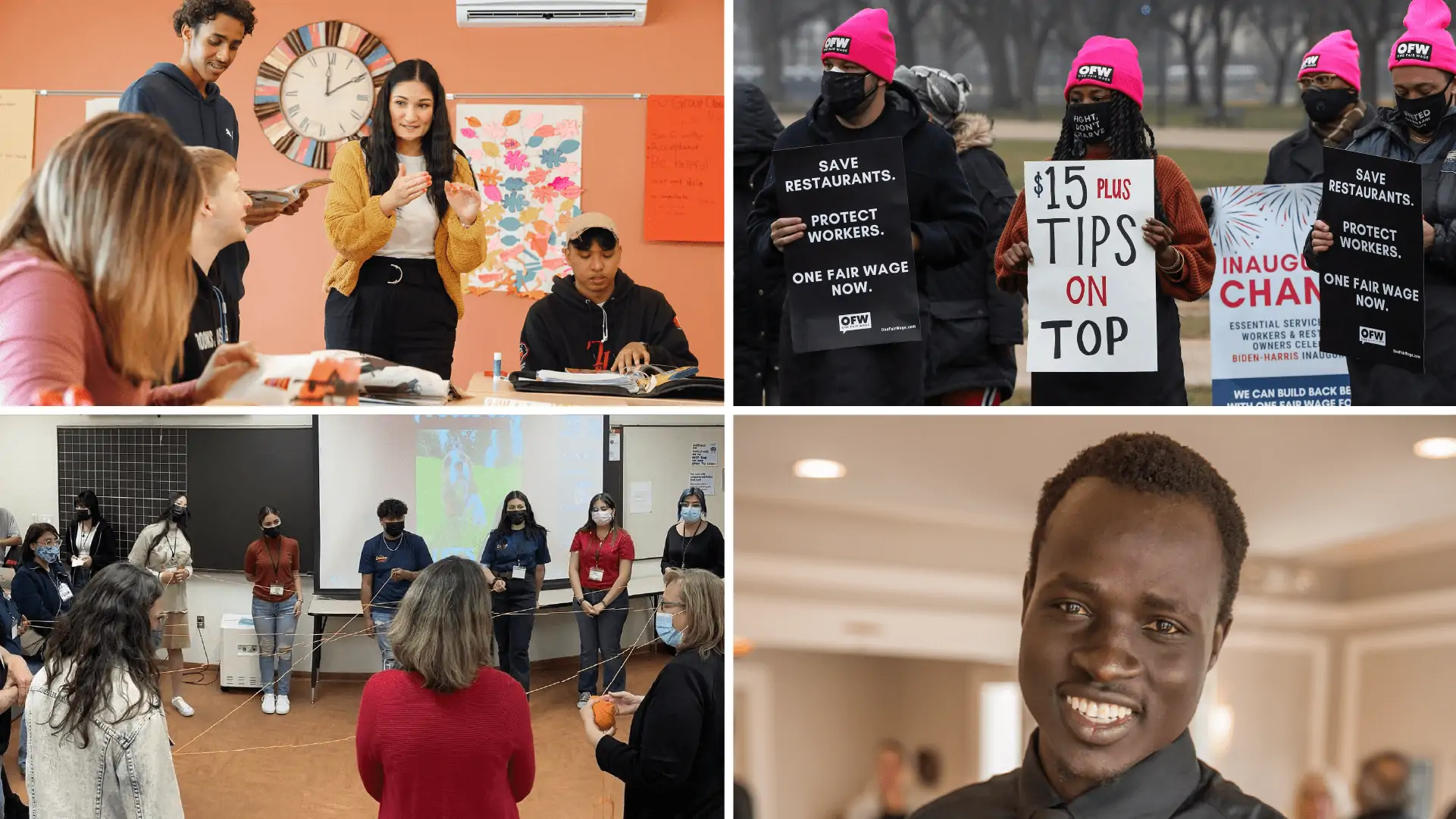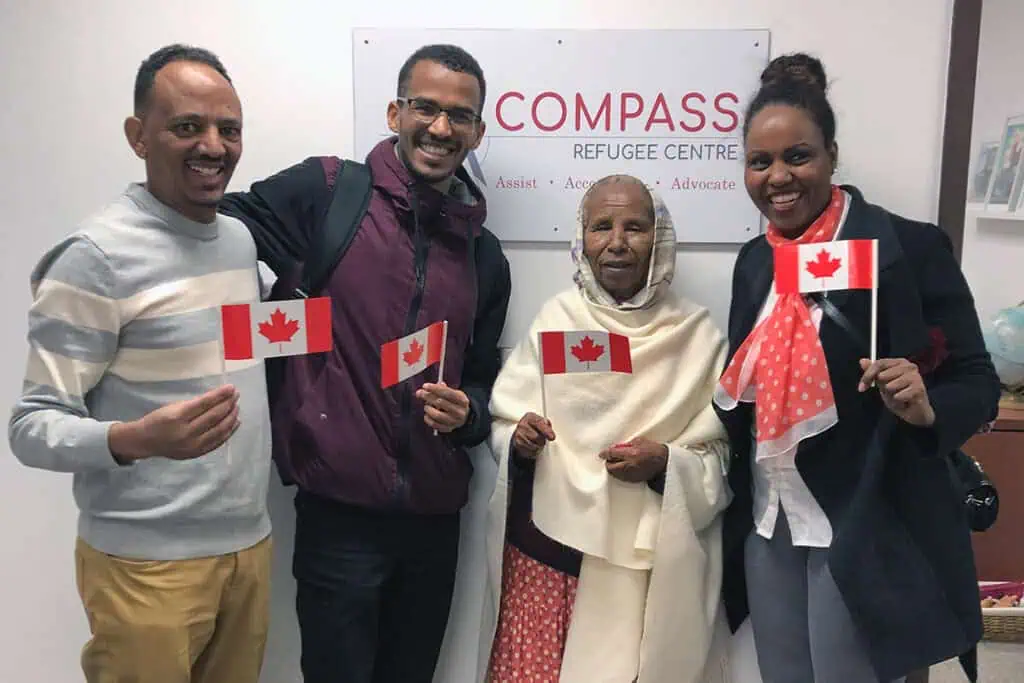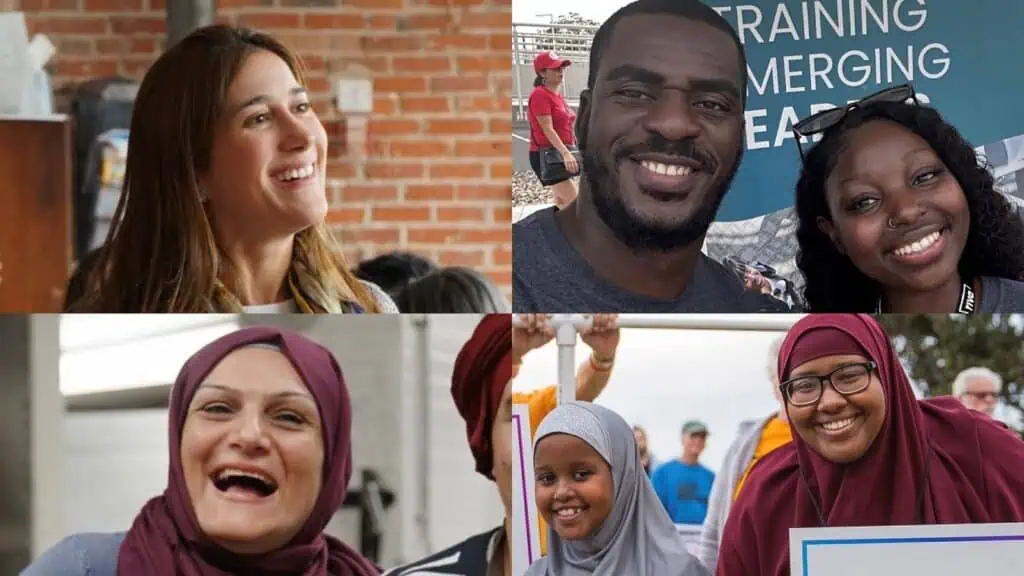Fund Announces $1M in Grants to Advance Inclusive Employer Practices and Career Pathways for Immigrants in the U.S. and Canada
The WES Mariam Assefa Fund today announced US$1 million in grants to eight organizations in the United States and Canada working to shift employer practices and develop career pathways that support the economic mobility and success of immigrants and refugees.
In the U.S., the Fund awarded grants to African Bridge Network, Center for Southeast Asians, New Mexico Dream Team, and One Fair Wage.
The organizations selected for funding in Canada are Diversity Institute at Toronto Metropolitan University, the Momentum Centre, Venture 2 Impact, and World University Service of Canada.

These grants build on an earlier round of funding awarded an open call for grant applications in the U.S. and Canada. The selected organizations are leading a range of approaches to effect greater economic opportunity for immigrants. These approaches include employer collaboration, worker power-building and organizing, skills training and work-integrated learning, and research on best workplace practices.
“To build a more equitable labor market and inclusive workplaces for immigrants and refugees, we must reimagine the role of employers in supporting our increasingly diverse workforce,” said Monica Munn, managing director of social impact at WES. “The WES Mariam Assefa Fund is proud to partner with these eight organizations that are working to ensure that employers across the U.S. and Canada meet the unique needs of immigrant job seekers and workers so they can achieve their goals and thrive.”
As the Fund’s commitment to advancing more inclusive employer practices grows, it will also bring partner organizations from the U.S. and Canada together to form a community of practice. Participating organizations will share learnings to drive change and improve economic opportunity for immigrants and refugees across borders.
Several grants announced today focus on specific sectors, including hospitality, technology, and human services — industries which offer plentiful employment opportunities to immigrants but which often engage in unfair labor practices and have an insufficient focus on job quality.
- One Fair Wage is expanding the geographic footprint of its U.S.-based High Road Training Program, which seeks to recognize thousands of restaurants that commit to increased racial equity and fair wages and help millions of workers earn higher wages and improve their work environments. Hospitality was among the sectors most affected by the COVID-19 pandemic, and supply shortages, rising inflation, and labor shortages continue to impact recovery, so there is an urgent need to bring employers and policymakers together to reimagine job quality.
- World University Service of Canada’s Hospitality Industry Welcomes Refugee Employment-Linked Sponsorship (HIRES) program engages Canadian employers to support the sponsorship and economic integration of refugee workers. This funding will support a one-year research project to explore the success and sustainability of the HIRES program, with the goal of scaling this workplace-led refugee sponsorship initiative across Canada.
- Venture 2 Impact is designing strategies for employers to develop more inclusive workplaces for immigrant and refugee professionals in the tech and innovation sector in Canada. In this fast-growing industry immigrants are often overlooked and underrepresented. Using human-centered design that engages both job seekers and employers, this work-integrated learning project seeks to help immigrants and refugees access jobs and advance in the sector.
- African Bridge Network is launching a consortium for human services employers in Massachusetts to collaboratively address challenges and better support the success of immigrants and workers of color. Even before COVID-19, the human services sector faced workforce shortages. The goal is to create a more equitable human services workforce by improving job quality, advancing opportunities for workers, and ensuring lower turnover.
“Many immigrants and people of color are employed in the human services industry, but a lack of professional development opportunities, low compensation, and a lack of diversity at senior management levels has resulted in high turnover and lowered productivity,” said Emmanuel Owusu, executive director of the African Bridge Network. “This funding partnership with the WES Mariam Assefa Fund sets the stage to create an employer consortium to innovate solutions that can support immigrant workers’ careers while developing an employer engagement model for the human services industry.”
In addition to supporting sector-specific practices, the Fund will back organizations working to ensure long-term paths to employment and advancement which specifically address the needs of youth and international students in the early stages of their careers.
- Momentum Centre is training international students in Manitoba, helping them overcome barriers to employment in STEM fields while meeting the talent needs of local employers. TMC will work with the University of Manitoba and other post-secondary institutions to develop work-integrated learning opportunities and identify international students to participate in the training.
- New Mexico Dream Team is creating and expanding pathways of opportunity for immigrant and undocumented youth in New Mexico. With this grant, the organization will explore curriculum development and training with and for employers, educational institutions, and immigrant students and job seekers. Additionally, through outreach and coalition building, New Mexico Dream Team seeks to expand its ecosystem of partners in the business community and mobilize more stakeholders to advance policy change that benefits businesses and immigrant and undocumented youth.
- Diversity Institute at Toronto Metropolitan University is helping to establish career pathways for immigrant youth, particularly Afghan refugees, in the Greater Toronto Area, Halifax, and Calgary through paid work-learning opportunities. Participants will receive employer-informed skills training, job placements, and additional supports to help them find further employment with participating employers and in relevant sectors.
“Refugees in Canada are an important part of our communities and make significant contributions to our economic and social fabric, building a stronger Canada,” said Wendy Cukier, PhD, founder and director of the Diversity Institute at Toronto Metropolitan University. “With this funding, the Diversity Institute will continue to support newcomers with new programming focused on innovative employer-driven approaches to improve opportunities for newcomer youth and the organizations that employ them.”
Lastly, a grant to the Center for Southeast Asians (CSEA) in Rhode Island seeks to support immigrants who are small business owners and aspiring entrepreneurs through business coaching, loans, and networking opportunities. This funding will expand CSEA’s employment programs and enable partnerships with local employers hiring immigrants.
“Supporting refugees and immigrants in Rhode Island is at the core of everything we do, and we seek to create new pathways to employment for our community,” said Channavy Chhay, executive director of CSEA. “We are also making direct monetary investments in refugee- and immigrant-owned businesses, and while this strategy is not without risk, we are convinced that it’s a risk worth taking. We strive to not only support Rhode Island’s refugees and immigrants, but also to develop new program models that can be replicated throughout the country and challenge the prevailing narrative around job training, so-called “good jobs,” and business ownership.”




